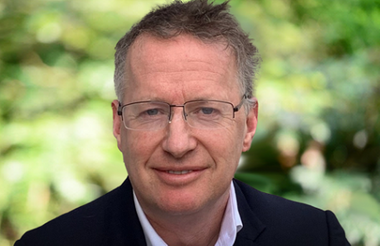Charity sector figures have responded to a speech by Charity Commission chair Orlando Fraser last week in which he said that the regulator may intervene if trustees demonstrate “personal squeamishness” around sources of philanthropic funding.
Jay Kennedy, director of policy and research at the Directory of Social Change, said the focus on trustees refusing donations for personal reasons appeared to be “a straw man”.
Meanwhile, Autism Nottingham said Fraser had indicated in his speech that he “wants to force unethical donations on charities”.
‘An unusual role for the regulator’
Fraser said last week that the Commission “will rarely intervene when trustees decide to accept, refuse or return a donation” but “rarely is not never”.
“The Commission may well intervene if we consider that such intervention would be consistent with our risk and regulatory framework, including if any decision-making is materially irrational,” he said.
“One example of materially irrational decision-making would be when it is apparent that the motivations for a return or refusal are simply the personal worldviews or preferences of the relevant trustees, rather than the best interests of the charity.”
Kennedy said: “There’s much to agree with in Orlando Fraser’s speech – wanting to boost philanthropy in the UK, shining a light on how we might get the wealthy to do more, holding up the regulatory environment here as a good example and model for elsewhere.
“It’s maybe an unusual role for the regulator to play but discussions about philanthropy need a higher profile.
“The points about trustees refusing donations for personal reasons seem to be a straw man, though. I doubt this is a common problem and there doesn’t seem to be any data to back it up.”
Kennedy said the sector needs a policy discussion about how to better facilitate wealthy people setting up foundations or how they could contribute to existing foundations, for example via the Community Foundation model.
“More help and guidance is needed in this area and we need to take advantage of existing expertise in the sector and the Commission about this,” he said.
Autism Nottingham: ‘Commission wants to force unethical donations on charities’
Claire Whyte, chief executive of Autism Nottingham said that “charities having moral foundations are not ‘squeamish” and that the “chair of the Charity Commission wants to force unethical donations on charities”.
She added: “A ‘sense of righteous progressiveness of a trustee or charity executive’ is not preventing charities from accepting donations from sources they find unethical, but knowing that benefactors would lose faith in the charity and no longer feel comfortable accessing its services.”
Whyte said: “We work hard to be an ethically and morally run charity, we try to champion diversity and acceptance throughout of staff and our beneficiaries. The notion of accepting money from funders who go against our moral foundations is counterintuitive to our mission.
“If, for example, we accepted funds from an organisation that is strongly against transgender people, we would lose the faith of our transgender beneficiaries, it won't matter how much money we are given if we don't have their trust to support them, we won't have anyone left to support.”
The CEO said being forced to accept money from donors who support organisations that harm a charity’s beneficiaries is also a concern.
Whyte said: “There are many organisations out there that have hidden (and sometimes not so hidden) agendas that could be harmful to Autistic people. By taking donations from these organisations, this would be showing the world we are condoning their actions.
“As an autistic-led autism charity, this would be a complete compromise of our morals, both as a charity and as Autistic people, and that's not the message we want to send.”
Assessing risk ‘increasingly difficult’
Charlotte Sherman, growing giving policy and partnerships manager at the Chartered Institute of Fundraising, posted on X that each charity needs to decide what will work best for them and their community.
We have to face up to the fact that assessing reputational risk is becoming increasingly difficult. Strong opinions on certain activities means there is a bigger risk of donors withdrawing their support if they disagree with their chosen charity accepting certain gifts. (1/4) https://t.co/shHpb1iFOd
— Charlotte Sherman (@CharSherman111) November 10, 2023
Carol Mack, chief executive at the Association of Charitable Foundations said the organisation was pleased to hear Fraser explicitly reference the critical role of philanthropy within the voluntary sector.
“We support his call encouraging greater philanthropic giving within the UK, transforming private wealth into social good. The charitable foundation model offers a transparent and effective way of doing this.”
Mack added one of the unique benefits of foundations is their flexibility and agility to respond to a crisis. For instance, Fraser suggests more philanthropic donations could be used to support the operating costs of charities.
“Foundations have trailblazed the way with this approach, funding core costs for charities that might otherwise have closed or scaled back the support they offer. But demand for foundation funding hugely outstrips supply which is why this focus on growing philanthropy is so welcome,” the CEO said.
Related Articles












